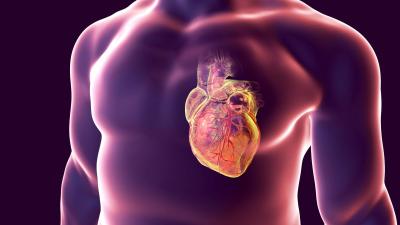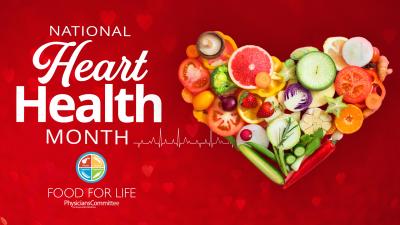Physician Profile: Robert Ostfeld, M.D., MSc.

This physician profile is republished from the Spring 2015 edition of Good Medicine. Dr. Ostfeld will be presenting on a panel at our upcoming conference on the topic of nutrition in clinical practice. To learn more or register for the International Conference on Nutrition in Medicine: Cardiovascular Disease, visit www.ICNM15.org.
Robert Ostfeld, M.D., MSc., director of the Cardiac Wellness Program at Montefiore Medical Center in Bronx, N.Y., and associate professor of clinical medicine at the Albert Einstein College of Medicine, will be among the leading physicians and researchers speaking at the Physicians Committee’s International Conference on Nutrition in Medicine: Cardiovascular Disease on July 31 to Aug. 1, 2015, in Washington, D.C. In this Good Medicine exclusive, Dr. Ostfeld answers questions about the state of heart disease and tips for preventing it.
What is the one thing someone can do today to improve their heart health?
When you go to the supermarket, I suggest you walk straight to the produce aisle. Select whole foods from the sea of green, red, yellow and orange. In my 11-plus years as a practicing cardiologist, outside of emergency surgery for a life threatening problem, I have never seen anything come close to providing the breadth and depth of benefits that eating a whole-food, plant-based diet does. When you eat this way, you bathe your body in nutrients. It is good for your heart, and it may prevent or improve dozens of other medical problems and make you healthier, every second of every day. Give your body the proper fuel and watch it flourish. If there were a single pill that could improve heart disease, your complexion, erectile function, diabetes, high cholesterol, high blood pressure, obesity, cancer, inflammatory diseases and other problems, would you be interested? It appears that it already exists, in your produce aisle.
What do you think is the No. 1 cause of the escalating heart disease epidemic?
I believe the No. 1 cause of the escalating heart disease epidemic is our toxic Western diet. Across the globe, populations that eat more of a plant-based diet have better health; whereas those that eat more of an animal-based diet do not.1 Accordingly, pathology studies have demonstrated that 65 percent of teenagers in the United States have early signs of cholesterol disease in the blood vessels that feed their hearts with blood.2 And it only gets worse. Heart and blood vessel disease is the No. 1 cause of death for both adult men and women in the United States.3 When we are born, our bodies are turbo engines. A bunch of animal products and processed foods later, we turn our bodies into clunkers. The good news, however, is that it is never too early to live more healthfully, and it is never too late. I have multiple patients in their 70s and beyond who have switched to a whole-food, plant-based diet and have seen profound improvements in their health. You can too!
References
- Esselstyn CB. Is the present therapy for coronary artery disease the radical mastectomy of the twenty-first century? Am J Cardiol. 2010;106:902-904.
- Stary HC. Evolution and progression of atherosclerotic lesions in coronary arteries of children and young adults.Arteriosclerosis. 1989;9(1 Suppl):I19-32.
- Murphy SL, Xu J, Kochanek KD. Deaths: Deaths: final data for 2010. Natl Vital Stat Rep. 2013;61:1-117.








